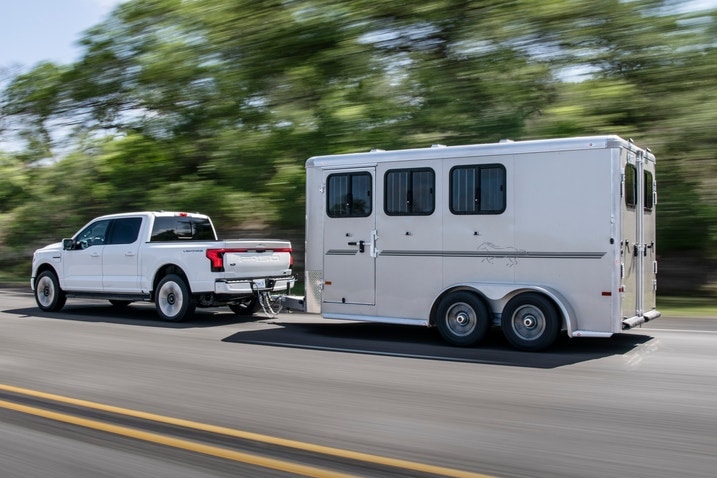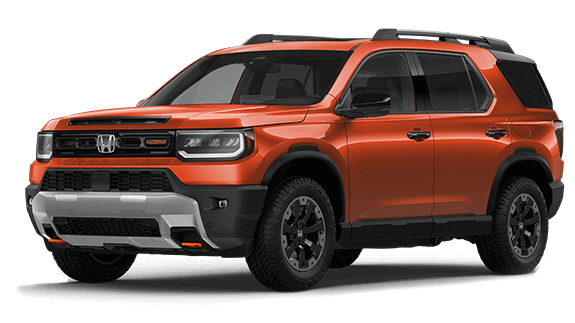The average weight of a vehicle sold in 2022 was 4,329 pounds, according to the Environmental Protection Agency. The EPA's report takes into account everything from trucks and SUVs to sedans. If you look at the weights of some of the most popular vehicles sold in 2023 individually, you'll notice a lot of variety in the market.
What does car weight refer to?
There are two ways of measuring a car's weight: curb weight and gross vehicle weight rating.
Curb weight refers to the total mass of the vehicle with all of its standard equipment and fluids (e.g., motor oil, brake fluid, coolants, a full tank of fuel, etc.) but no passengers or cargo.
Gross vehicle weight refers to the weight of all of the above, plus the maximum payload of passengers and/or cargo.
Why does a car's weight matter?
The weight of a car matters for several reasons, ranging from performance to safety. Understanding the benefits and downsides of having a heavy vehicle can help you shop for a car that best suits your needs.
Performance
Weight is one factor to consider if you want a vehicle with good performance and responsive acceleration. Bigger vehicles aren't always more sluggish, but they need a more powerful engine to compensate for the increased weight.
Fuel efficiency
Heavier vehicles require more fuel to go the same distance. Every 100 pounds of weight removed from the vehicle can increase its fuel economy by up to 2%. Other factors also come into play when assessing fuel economy, including your average speed and the vehicle's aerodynamic properties. However, if your goal is to own an economical vehicle, choosing one that's lighter is a good starting point.
Vehicle weight and safety
Lighter vehicles typically come off worse in a collision than heavier vehicles. If you're involved in a collision with a vehicle that's 1,000 pounds heavier than yours, the risk of that collision being fatal is 47% higher than if the other vehicle had been the same weight. With that said, the safety features on modern vehicles are impressive, and smaller vehicles with crumple zones, multiple airbags and electronic driver safety features reduce the likelihood of accidents and help prevent serious injury if a crash occurs.
Towing capacity
Heavier vehicles are usually able to tow larger trailers or carry more weight. If you plan on towing a boat or using your truck to haul heavy loads, that's something you should take into account.
Legal limitations
People often overlook the strain that heavy vehicles can put on local infrastructure. Some states have limits on how much a car can weigh. If you drive a vehicle that's over the limit, you may get fined. These limits are usually quite generous, so if you're buying a popular vehicle from a well-known manufacturer, you're unlikely to hit the limit. If you're looking at a large vehicle with a lot of aftermarket modifications, it's worth checking if the vehicle is an acceptable weight for your state.
What affects a car's weight?
Several factors affect the weight of a car, including:
The weight of passengers and cargo
The gross vehicle weight rating takes into account the maximum load of passengers and/or cargo that a vehicle can hold. So if you're purchasing a large truck or SUV, it will be far heavier than a small sedan or hatchback. If you're looking for something light but spacious, consider a small crossover.
If you're looking to improve the fuel efficiency of a vehicle you already own, it's worth considering the weight of any cargo. Have you cleaned out your trunk recently? If you lug sports gear or a full toolkit around with you every single day, even when you're just headed to the local mall, you could be wasting fuel.
An entire community has sprung up around the practice of hypermiling, where people try to minimize what they're carrying in their car and alter their driving habits, accelerating and decelerating more smoothly and staying within certain speed limits wherever possible. Adherents claim that hypermiling can improve fuel economy without having to change your car.
Fuel capacity
Fuel adds weight to a vehicle, so a car or truck with a significant fuel capacity weighs more than one with a smaller tank. If the only driving you plan to do is the school run or a short commute, you may prefer a lighter, more fuel-efficient vehicle with a smaller tank.
Weight can make a bigger difference than you think
Modern vehicles have an impressive number of safety and comfort-related features, and manufacturers have managed to squeeze these in without driving up the average weight of a vehicle all that much compared to three or four years ago. However, if you want to get more mileage for your money, lighter is still better.
Before you buy your next car, do your homework on vehicle weights and run the numbers for fuel efficiency. You may be surprised at how much you could save over the lifetime of the vehicle if you choose wisely.


 by
by  edited by
edited by 
